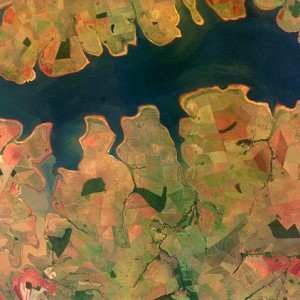The Stream, December 17: Climate Risks Underestimated By Not Taking Into Account Water, Agriculture, Ecosystem, and Health Interactions
Climate Change
Under a worse-case scenario in which global temperatures rise 4 degrees Celsius, most of the world would experience interrelated stresses to water, agriculture, ecosystems, and public health, with 18 percent of the population experiencing “severe pressure” in each category, according to a study published in the Proceedings of the National Academy of Sciences, the Guardian reported. The study explores how pressure in each sector might create further pressure in other sectors, causing more damage than might be predicted with climate models that take just one category into account.
Changes in rainfall patterns and river flows in western Africa are prompting countries to build dams to store water for agriculture, AlertNet reported. Three dams planned for the Niger River Basin will provide water for irrigation and hydropower, as well as control flooding.
Energy
Levels of hormone-disrupting chemicals are higher in water sources near oil and gas wells that are hydraulically fractured, according to a new study of wells in Colorado, The Los Angeles Times reported. The study by researchers at the University of Missouri found the chemicals in the Colorado River, and suggests that spills of wastewater from fracking sites may be the source.
Technology
Small hydropower generators placed in the water systems of skyscrapers may help provide the buildings with electricity, The New York Times reported. The technology, currently being tested in select buildings in Hong Kong, has potential but needs to become more cost effective, according to market analysts.
The Stream is a daily digest spotting global water trends. To get more water news, follow Circle of Blue on Twitter and sign up for our newsletter.
A news correspondent for Circle of Blue based out of Hawaii. She writes The Stream, Circle of Blue’s daily digest of international water news trends. Her interests include food security, ecology and the Great Lakes.
Contact Codi Kozacek







Leave a Reply
Want to join the discussion?Feel free to contribute!